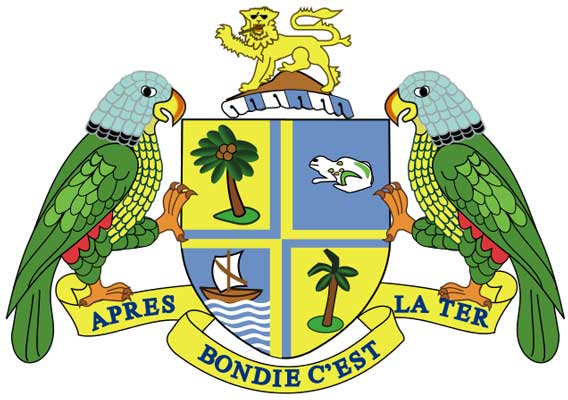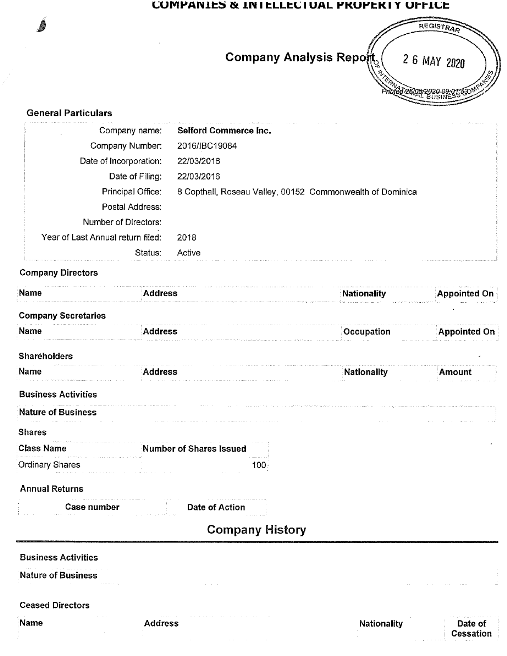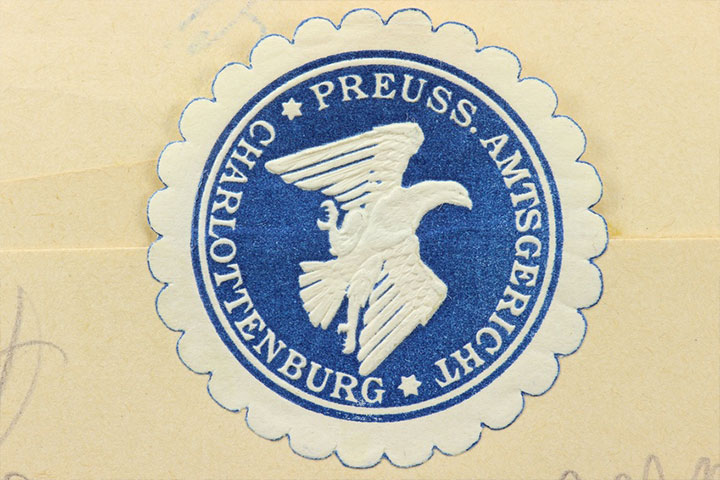
Schmidt & Schmidt provides extracts from the commercial register of Dominica with a translation and an apostille.
The Commonwealth of Dominica is an island country in the Lesser Antilles in the Caribbean, located between Guadeloupe to the north and Martinique to the south. Dominica gained independence from the United Kingdom in 1978, and became an independent realm within the Commonwealth of Nations. Dominica is a republic with the president as the head of state. Local currency is the East Caribbean dollar. Official language is English.
Traditionally, the economy in Dominica was based on agriculture. Nowadays it is gaining popularity as a major international financial services centre, with the main focus on offshore banking.
First of all, an International Business Company (the most common type of an offshore business) can be easily registered here, even over the Internet.
Secondly, Dominica offers high level of confidentiality, broad range of provided services, low fees for licensing, no obligation on financial reporting, and full tax exemption.
Lastly, there is the Dominica Economic Citizenship Program that legally allows to get citizenship in Dominica by investing 100 000 USD (per person – 200 000 USD for a family of four, with two underage children). Initial citizenship is not revoked, physical presence in Dominica is not required, neither is any interview. This is also the cheapest program of its kind.
Solid privacy laws make obtaining information about companies in Dominica highly problematic. This information is kept by the Registrar who is usually only allowed to disclose it by court order or by prosecutor’s demand. Unlawful disclosure of information (by Registrar, auditor or bankruptcy commissioner) results in a fine up to 25 000 USD.
Dominica managed to avoid the black list of OECD by committing to reforming its taxation to fit the international standards. Today OECD classifies Dominica as “provisionally largely compliant” in tax cooperation matters, and its progress its carefully monitored. The European Union has demanded Dominica to abolish the current tax regime by the end of 2018.
Business activities in Dominica are regulated by, inter alia, 1994 Companies Act, 1996 International Business Companies Act, and 1999 Patent Act. Local legislation is based on the English Common law.
Main types of businesses in Dominica
- International Business Companies
- Private Limited Liability Companies
- Public Limited Liability Companies
- Non-profit Companies
- Individual entrepreneurs
- Partnerships
Commercial register of Dominica is administered by the National Companies and Intellectual Property Registry for the Commonwealth of Dominica (CIPO), a Department of the Ministry of Tourism and Legal Affairs. CIPO was established by the Patent Act in 1999.
Extract from commercial register of Dominica contains following information:
- Full legal name
- Registration number
- Registration date
- Type of business
- Current status (active or inactive)
- Type of business
- Full address
- Registrar’s details
NB: Amount of information depends on the type of business. Information about some companies may be unavailable, or available for a fee.
To get a required document, we will need the following information about a company:
- Full legal name
- Registration number
Search in the register is not free of charge. Search results are usually provided within 3-5 working days.
Inquiries are processed from 30 minutes.
| Service | Price incl. German VAT 19% | Price excl. VAT |
|---|---|---|
| Price for an Electronic Extract | from 357,00 € | from 300,00 € |
| Price for an Extract with Apostille without international shipping | from 714,00 € | from 600,00 € |
Certificate of Good Standing is an official document that confirms a company’s solvency, reliability, and right to do business in Dominica. This certificate is only issued to companies that fully comply with the requirements in terms of taxation and financial reports submission.
Certificate of Incorporation confirms company’s registration in Dominica.
Memorandum and articles of association is in copy.
An extract from the business register of Dominica can be used in order to:
- Obtain detailed information about potential business partners
- Negotiate foreign trade agreements
- File legal claims
Apostille for extracts from Dominica
Dominica acceded to the The Hague Convention Abolishing the Requirement of Legalization for Foreign Public Documents on 22 October 2002.
Therefore, the documents issued in Dominica are subject to a simplified apostilling procedure, thus the documents gain full legal value in Convention member states after certified translation.
In addition, you can order certified translation from English.
We provide extracts from the register in strict compliance with the legislation of the Commonwealth of Dominica and the General Data Protection Regulation.
Inquiries are processed within one working day. Courier delivery of apostilled documents is paid separately by courier service tariffs.
You can order free preliminary availability check of required information on our website.

















































